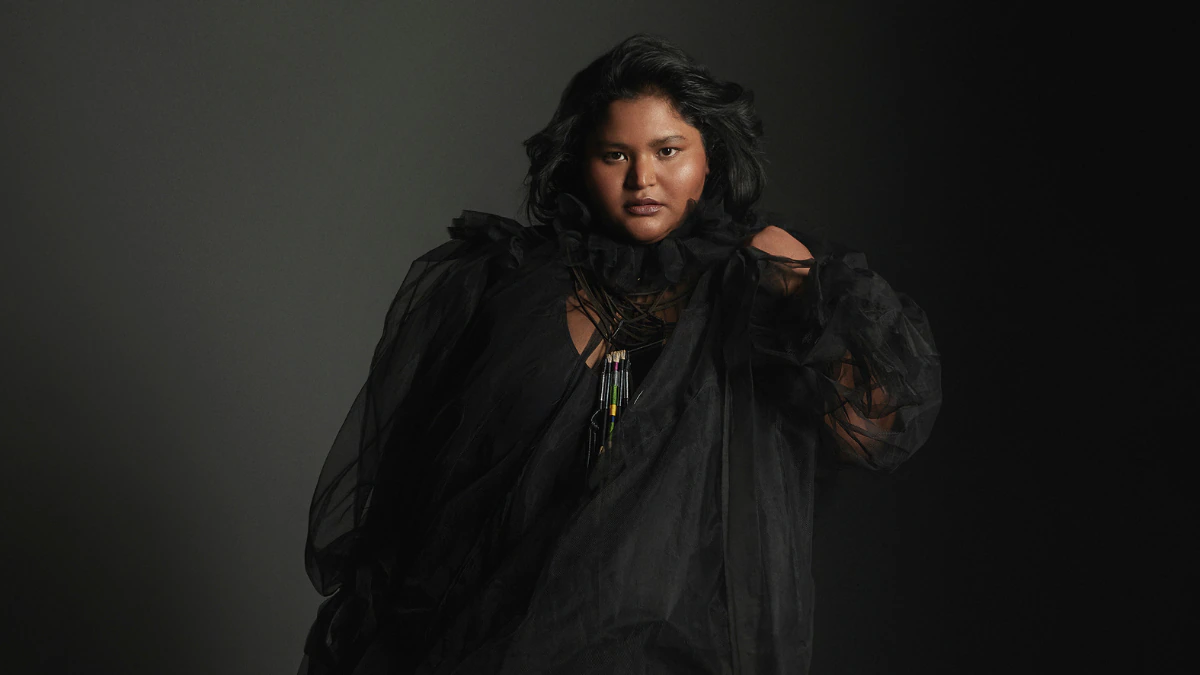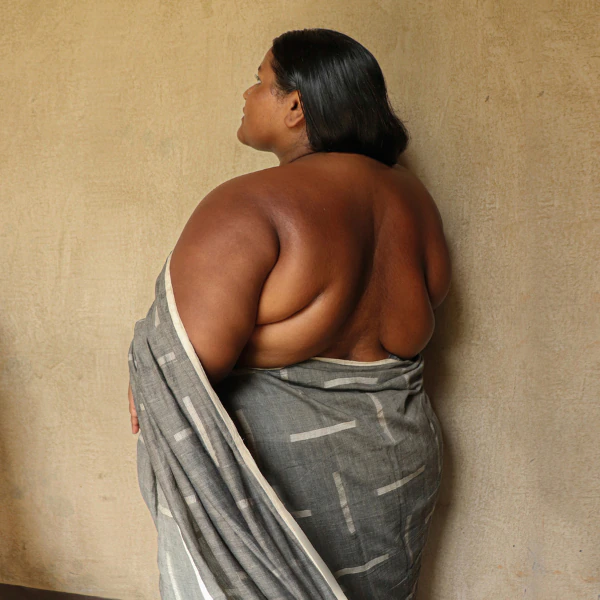Sobia Ameen, a Bangladeshi influencer, is changing the idea of Eurocentric beauty and answering the trolls with wit, sarcasm, and perseverance. She unhesitatingly remarks that true love is derived from dogs, and humans are too selfish to claim their right to it. She doesn’t try to fit into a mould, but breaks the gaze and tramples on our superficial idea of beauty.
Sobia lives in Dhaka and has worked extensively with Indian designers. She was noticed primarily through the House of Masaba shoot and since then she has had a special place in the Indian fashion industry. She gleams through the parandis and flaunts her bindis, establishing a strong connection with her roots while maintaining her modern outlook.
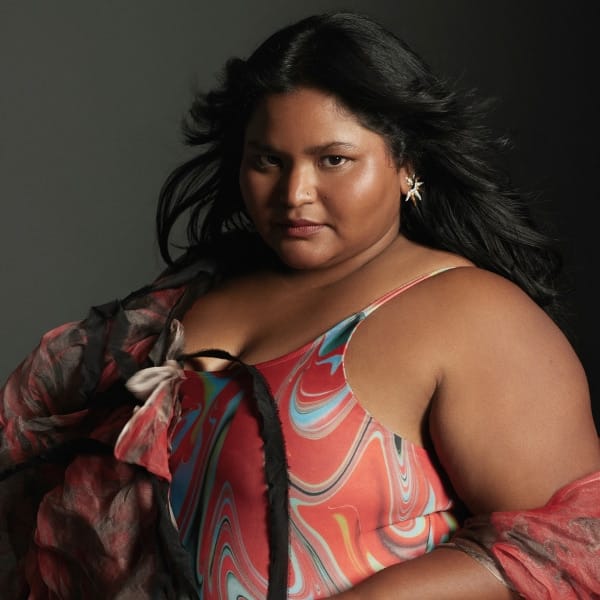
Trolling is not new to Sobia, and she uses her usual wit to irk her haters online and offline. She stands firm in her ideal that she (and the women like her) must be represented and should be included. She doesn’t demand inclusion; she exists as her chaotic self and lets her smile deal with the noise.
What is beautiful?
Beauty is not constant, but the ideals have been cemented in our colonial histories for centuries. A woman must be pleasing and passive. She should be adorned with abundant feminine assets, preferably light-skinned, and donning curves at specific places. The modern patriarchal society with its roots in colonial legacy has defined beauty precisely, not through some scientific journals, but cultural and social literature like songs, jokes, preferences, and so on.
Sobia Ameen has existed for over three decades, but her being truly herself irked the traditionalists. They just could not bear to watch a woman (not fitting their beauty moulds) smile confidently and live unabashedly. After being called “too fat” and “too dark” too often on the internet, Sobia decided to talk back.
While the specifications might have changed, the mould remains essentially the same. The globalised patriarchal culture prefers a woman who looks modern in Western fashion but acts traditional in family roles, reflecting colonial legacies. Any anomaly to the said narrative is met with harsh words and threatening trolls. The fault of the women who do not fit in is that they exist and celebrate their existence.
Sobia Ameen has existed for over three decades, but her being truly herself irked the traditionalists. They just could not bear to watch a woman (not fitting their beauty moulds) smile confidently and live unabashedly. After being called “too fat” and “too dark” too often on the internet, Sobia decided to talk back.
She wrote on her X account, “Woke up to a post of mine from last week going viral. Apparently, a saree and a bit of self-confidence is a threat to some people. Look, I live and grew up in Bangladesh, we are shameless in how we talk to people about appearances, so ‘fat’ and ‘kalo’ is not very original or new to anyone, let alone me. Kind of boring if you ask me. My favourite, though, is ‘Every man’s nightmare.’ Thank you! I don’t want to be in men’s dreams. Especially not such mentally ill and poor ones. Never applied for that role. It is wild how triggered people get when a woman exists outside their approval.”
Challenging the male gaze
The term Male Gaze was coined by film theorist Laura Mulvey in her 1975 essay, “Visual Pleasure and Narrative Cinema”. She understood how women were mere objects of display to satiate the heterosexual patriarch’s voyeuristic lust. Women were supposed to look and act a certain way because it pleases men. The entire language and visual narrative are designed to please the man, and any jarring image triggers violent reactions.
Sobia doesn’t claim to be a body-positive influencer. Her social media feed reflects a woman celebrating the little joys of life and embracing her curves. Her architectural background helps her understand textiles and structures that let her play with silhouettes and flaunt her beauty.
Sobia encountered men trying to demean her, donning a saree or giggling in the company of a man, by reminding her that she is not wanted. Patriarchy has not only drawn boundaries but ensured they are respected and maintained. The content must be designed to suit their appetite, and any transgression is met with verbal violence.
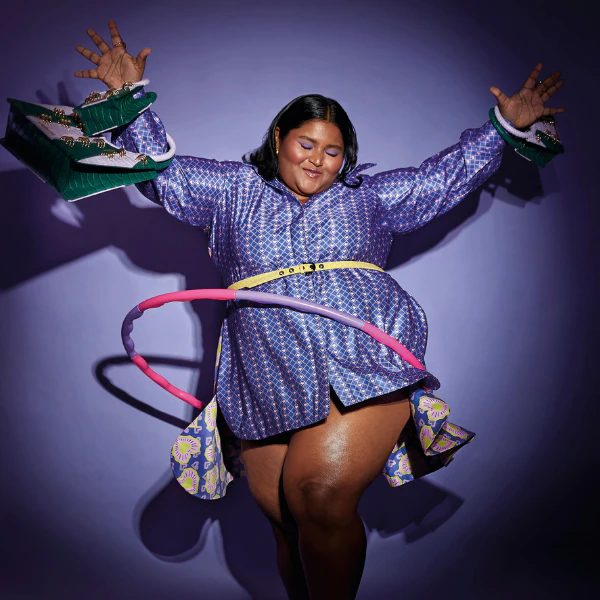
One can only imagine how much courage it takes to keep posting despite people questioning your existence. But Sobia says that she does it for women like her, so they know that somebody who looks like her is out there enjoying rain and gulping grapes on the New Year, manifesting a lover this year.
She not only breaks the gaze, but reverses it! She has become the voice for millions who expect inclusivity but don’t demand it.
Defying societal norms
Sobia doesn’t claim to be a body-positive influencer. Her social media feed reflects a woman celebrating the little joys of life and embracing her curves. Her architectural background helps her understand textiles and structures that let her play with silhouettes and flaunt her beauty.
She is not looking for validation or brand deals. She is just making stories, making her the most body-positive of the lot. While she bakes a special RoohAfza Tres-leches cake (while wearing a RoohAfza shirt, of course), she also posts her workout and dance sessions. She neither preaches nor rants about her struggles or her journey. She only lives and posts glimpses of her extraordinary life, attracting backlash from patriarchs.
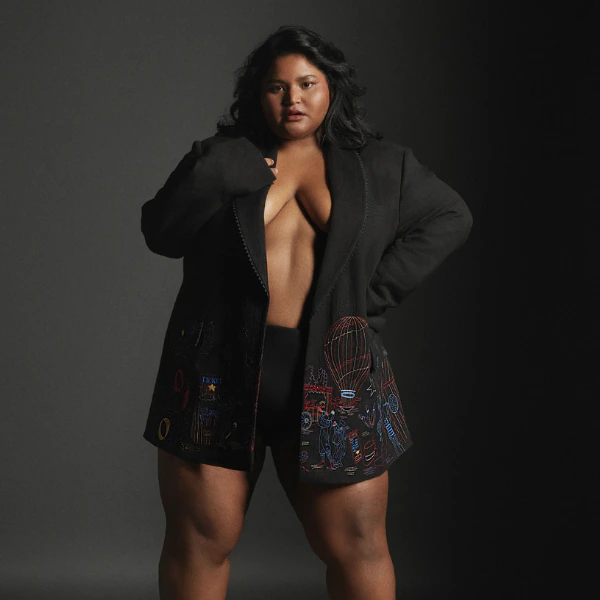
Body positivity and inclusivity have become token terms today. Brands use models of different colours, sizes, and heights to look inclusive, but dedicate only a side section of the shelf for the extended sizes or colour ranges. Sobia aims to fight this tokenism, revealing the sad truth of the garment and fashion industry.
In an interview with Harper’s Bazaar India, she opens up about how she was misunderstood to be Varshita Thatarvarthi after Varshita’s outstanding bridal campaign with Sabyasachi. Ameen seems shocked at how people confused them because they were both plus-size models with darker complexions. This incident highlighted how they are only replaceable tokens for the industry, to be used to claim inclusivity and then discarded.
Inspiring a new generation
Sobia Ameen is not an activist in the truest sense. She is just a confused thirty-two-year-old woman experimenting with her life, doing a little of everything she loves while not caring about society. What triggers people the most about her is not just her appearance, but that she confidently demands what she wants and achieves her dreams. That she is not sobbing about her circumstances or fighting for a man to rescue her. After all, no Bollywood songs have been dedicated to honour beautiful, fat, dark women immensely in love with themselves.
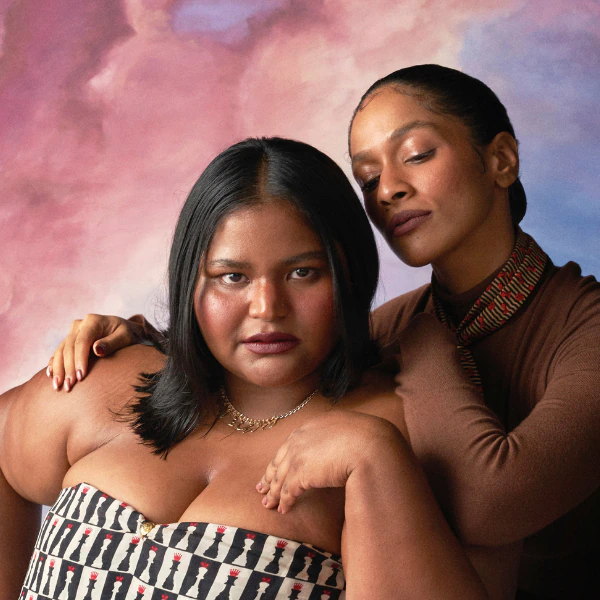
When you find Sobia Ameen while looking for confident women living against all patriarchal odds, she immediately becomes a little dose of happiness. Her photos reveal her bare arms, sweating face, and back rolls, all presented with love and not hanging for validation. It is seldom that we meet women so unaware and happy that they shatter every mould they come across. She doesn’t post about men or wellness, she talks about love, food, and happiness. She caters to what is most important in life, family and relationships, while not defining herself through the bougie words about inclusivity and forgiveness.
Ameen doesn’t preach body positivity; she lives it, and we need more women like her in front of the camera so women everywhere can embrace their existence and celebrate inclusivity. Ameen doesn’t just make fat-woman content; she documents her life, which is colourful, quirky, and filled with love. She is a woman trying to survive patriarchy and shatter one stereotype at a time, only so that tomorrow, when a young girl looks at her in the media, she will gather the strength to just be herself, no matter what the world says.
About the author(s)
Dr. Guni Vats is an Assistant Professor at the Department of English, Manav Rachna International Institute of Research and Studies. A PhD in Gender Studies, she is a renowned researcher, writer, and scholar.
